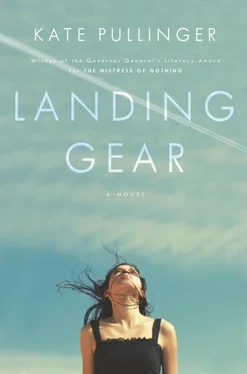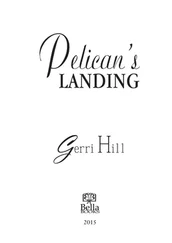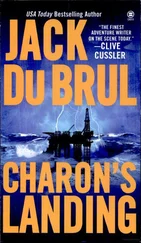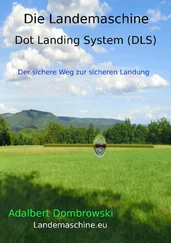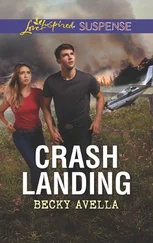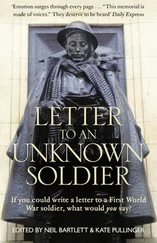Kate Pullinger
LANDING GEAR
For my family: Simon, Tom and Iris.
And for all the strangers who greet one another with tenderness and hospitality.

I first came across the stories of landing gear stowaways in an article in The Guardian newspaper in 2001. A body had landed in a supermarket car park in London, not far from where I live. The two investigative journalists working on the story discovered that this young man was only the latest in a series of airplane stowaways to fall into or near this car park over the previous decade, released as planes lowered their wheels before landing. The journalists traced the identity of this most recent stowaway, travelling to Pakistan to meet his family. A myth circulates in some parts of the world that you can climb into the hold of an airplane via the landing gear. In fact, most people who attempt to stow away in this manner die en route, crushed by the enormous wheels of the plane as the landing gear retracts, or freezing to death once the plane reaches cruising altitude. But, occasionally, people survive these extraordinary journeys and manage to reach their longed-for destinations.
PROLOGUE

FLIGHT PATHS
SPRING 2012
YACUB IN DUBAI
I went to Dubai from my home in Pakistan because I heard I could earn good money.
There was a man in my village who had been working in the Emirates; he was injured on the building site where he worked when a section of scaffolding fell on his foot. He had a lot of stories about what life was like in the workers’ camps, so I knew what to expect.
I liked the look of Dubai; I liked the idea of living in a place where everything was new. The plane was full of men like me, leaving home to work abroad, although I was one of the youngest. When we landed, we were transported to the camp where we were to live.
The conditions were not good—too many men. But I was happy, and when I got to the building site the next day—two hours by bus either way—I was happier still. I wanted to work. Now I had a job. Now I would be paid.
But it turned out that getting paid for the work I did was not as simple as I thought it would be.
YACUB AT THE AIRPORT: KARACHI
At the airport, I followed the instructions Ameer had given me—for which I had paid the last of my Dubai money—and found the unlocked door that led outside to the planes. I had less than fifteen minutes after darkness fell to find the correct airplane.
I’d been home from Dubai for a while, but there was no work in Karachi. I told Raheela, my sister, I was going back to Dubai. We spent a long time over our goodbyes. She could tell that something was up, but I told no one my real plans, not even her. We’d lost our parents when we were teenagers—our father in the 2005 Kashmir earthquake, our mother a year after that—so we were used to finding our own way. Even so, I found it hard not to cry when we parted.
From the ground, the planes looked enormous, their lights blinking in the dusk. The air stank of petrol and tires.
But I found the plane I wanted, and no one saw me. I climbed over the giant wheels and shimmied up the landing gear and folded myself onto the little shelf, which was exactly where Ameer had said it would be.
HARRIET DRIVING: LONDON
I have to go to the supermarket today, otherwise my family will starve.
Well, not starve, exactly. In the event of a war or cataclysm of some kind, there is enough food in the house to last for—how long? The pantry. The fridge. The storage jars. The cupboard full of breakfast cereal. The shelf of tins. The peas that have fallen out of their bag and are rolling around in the bottom drawer of the freezer. The tahini that is older than my teenaged child.
We would last at least one month, maybe even two, before we would have to eat those jars of red wine preserves given to me several years ago. Except that isn’t the point. The fact that there is already a ton of food in my house and I am on my way to buy more is not the point.
While there are plenty of wars and cataclysms happening elsewhere, as far as I can see, stuck as I am in the one-way traffic system, Richmond is its usual placid, well-fed self this week.
The family expects meals. They know that faeries do not replenish the cupboards in the night, but how why when and where the food comes from is not something that interests them. It is not something that interests me either. But I am a good wife. I am a good mother.
DARK MASS
There is almost no room for me on this shelf;
there is no secret entrance into the cargo hold.
I finish the shopping beneath the supermarket’s harsh lights and zombie-walk muzak; the boy at the checkout is unaccountably cheerful, and this makes me smile.
I am crushed into this too-small space;
I have been here for an eternity.
I push the loaded trolley across the car park, battling to keep its wonky wheels on track as it veers toward a row of shiny bumpers.
Freezing hot, then burning cold.
I pop open the boot of my car and then for some reason, I have no idea why, I look up, into the clear blue sky.
And I see him.
It takes me a long moment to figure out what I am looking at.
A dark mass, growing larger quickly.
I am falling through the sky.
He is falling from the sky.
The earth is coming up to meet me.
I let go of the trolley and am dimly aware that it is getting away from me but I can’t move, I am stuck in the middle of the supermarket car park, watching, as he hurtles toward me.
Almost there now, my destination.
I have no idea how long it takes—a few seconds, an entire lifetime—but I stand there holding my breath as the suburbs go about their business around me until…
He crashes into the roof of my car.
PATHS CROSSING
He looked perfect lying there, the roof of my car like a crumpled velvet blanket. I stood like an idiot and waited for people to gather round, waited for sirens to ring out, alarms to sound.
But there was only silence. The sound of my breathing. The sound of me staring. The sound of me not knowing what to do.
And then he sat up and said, in perfect, lightly accented English, “Am I dead?”
I nodded and tried to think of the right way to respond. “I think so. You must be. Or I am.”
He climbed down off my car. “Is that your trolley?” He sprinted over to retrieve it without waiting for my reply. “Please take me with you. I’m starving.”
“Okay,” I said. “I’ve got food.” The car was wrecked. “We’ll get a taxi.”
PART ONE

ASH CLOUD IDYLL
APRIL 2010
Later, much later, after it was too late and Harriet had too much time to dwell on it, she realized that it was all the fault of the planes. Everything that happened, all of it, all of the… stuff was the fault of the planes. Or rather, the fault of the volcano. If Eyjafjallajökull hadn’t erupted, billowing into the jet stream vast plumes of ash laden with shards of ice, shutting down airspace over the whole of Europe, none of this would have happened. Jack wouldn’t have been suspended from school; Michael wouldn’t have spent that week in Toronto; Harriet would never have contacted George Sigo; she’d still have her job and her son would still believe that people are fundamentally decent. In the middle of April, life was normal; by the end of the first week of May, life had changed.
Читать дальше
